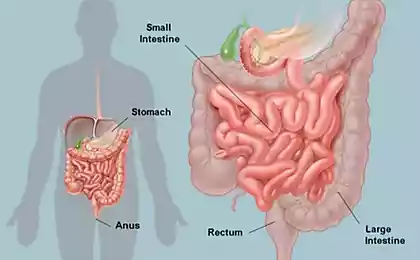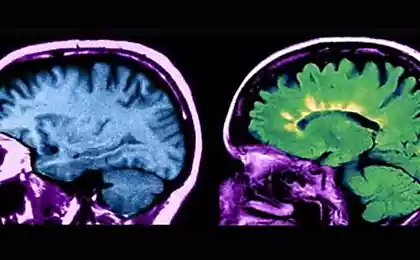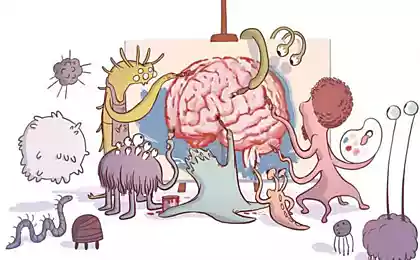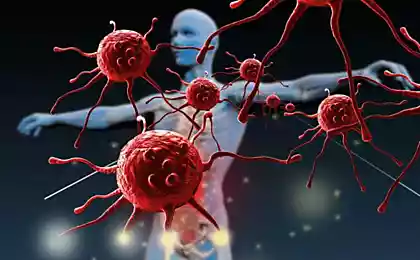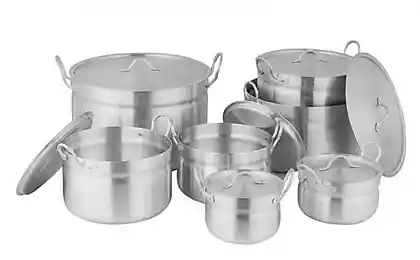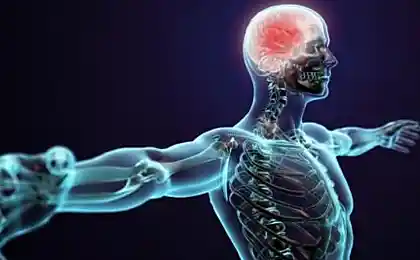475
The connection between emotions and the immune system
Under extreme physical and psycho-emotional loads from human serum can completely disappear immunoglobulins protein molecules that determine immune status. Their normal concentration is recovered only 2-4 weeks after the endured stress.
The main signs of a weak immune system include:
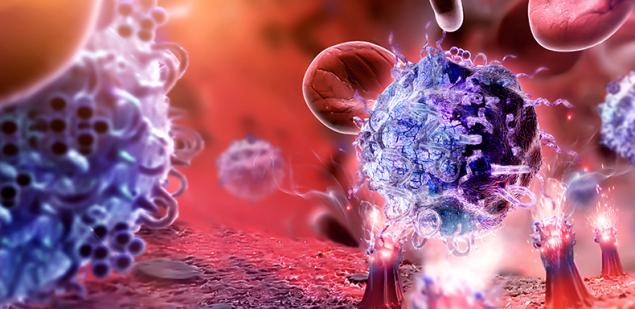
The cause of the immunodeficiency is not so much the stress itself, as in the resulting reaction of surrender. It was a reaction of surrender increases the secretion of cortisol which suppresses the immune response. The study showed, for example, that the lack of meaning of life, the instability and lack of plans for the future more actively cause lung cancer than Smoking.
Sometimes the immune system is too active attacks foreign bodies (allergens) that are perceived as hostile, which causes allergic reactions: sneezing, breathlessness, watery eyes, skin rash and headache.
There are many factors affecting the level of immunity. Studies have shown that mental stress help maintain a healthy level of both the human mind and the immune system. Damage to neurons in the brain can lead to problems with the immune system. It can amplify or mute the immune system response — depending on what part of the brain is damaged.
There is a link between emotions and the immune system. For example, laughter increases the levels of immunoglobulin, inhibits the formation of stress hormones cortisol and adrenaline, increases the amount of pleasure hormones (endorphins and enkephalins), reduces blood pressure, normalizes sleep. Even the singing strengthens the immune system.
Studies have shown that in human blood, within 60 minutes performed "Requiem" of Mozart, greatly increases the concentration of alpha-immunoglobulin, forming a protective cellular barrier and significantly increases the level of hydrocortisone — a stress hormone. It is believed that events like a pleasant family celebration or meeting friends, improve the immune system in the next two days.
Unpleasant events have the opposite effect: weaken the immune system within one day. The lack of a pleasant event is more conducive to colds than the presence of light stress. Weakens the immune system and the impact of mental toxins, such as negative thoughts. Of Swiss scientists has shown that negative thoughts or feelings can cause depression of the immune system for several hours.
Physical activity requiring great effort, contribute to the emergence not only of acute respiratory and viral diseases, but also open the way for more serious ailments. Especially dangerous morning workout, which is still promoted as a necessary component of a healthy lifestyle. In 2002, British scientists found that during exercise in the early hours there is a decrease in activity of protective forces of an organism. At the same time when Jogging in the daytime, the body produces nonparametric, which has obscenities effect, relieves stress, eliminates depression and makes a person friendly and sociable. The action of this hormone stops after two days. Reduce immunity monotonic and cyclic physical exercises with weights.
We can recommend the exercise "the rubbing of the ankles". Standing, heels together. Rhythmically rise on toes and down on your heels 10-20 times so that the ankle rubbed one on another. This self-massage of the ankles affects active points, stimulating activity of the digestive tract, but if you breathe as if with a yawn (with his mouth closed), that describes the motion have a restorative effect.
Author: Frol Ermolaev
P. S. And remember, only by changing their consumption — together we change the world! ©
Join us in Facebook , Vkontakte, Odnoklassniki
Source: vk.com/sdrujina?w=wall-68594028_78614
The main signs of a weak immune system include:
- frequent colds (adults more often 5 times a year),
- flowing for a long time (over 2 weeks);
- recurring purulent diseases of the oral cavity and nasopharynx;
- increased long subfebrile (37-38 degrees) temperature;
- disorder of the gastrointestinal tract, dysbacteriosis;
- frequent exacerbations of herpes.

The cause of the immunodeficiency is not so much the stress itself, as in the resulting reaction of surrender. It was a reaction of surrender increases the secretion of cortisol which suppresses the immune response. The study showed, for example, that the lack of meaning of life, the instability and lack of plans for the future more actively cause lung cancer than Smoking.
Sometimes the immune system is too active attacks foreign bodies (allergens) that are perceived as hostile, which causes allergic reactions: sneezing, breathlessness, watery eyes, skin rash and headache.
There are many factors affecting the level of immunity. Studies have shown that mental stress help maintain a healthy level of both the human mind and the immune system. Damage to neurons in the brain can lead to problems with the immune system. It can amplify or mute the immune system response — depending on what part of the brain is damaged.
There is a link between emotions and the immune system. For example, laughter increases the levels of immunoglobulin, inhibits the formation of stress hormones cortisol and adrenaline, increases the amount of pleasure hormones (endorphins and enkephalins), reduces blood pressure, normalizes sleep. Even the singing strengthens the immune system.
Studies have shown that in human blood, within 60 minutes performed "Requiem" of Mozart, greatly increases the concentration of alpha-immunoglobulin, forming a protective cellular barrier and significantly increases the level of hydrocortisone — a stress hormone. It is believed that events like a pleasant family celebration or meeting friends, improve the immune system in the next two days.
Unpleasant events have the opposite effect: weaken the immune system within one day. The lack of a pleasant event is more conducive to colds than the presence of light stress. Weakens the immune system and the impact of mental toxins, such as negative thoughts. Of Swiss scientists has shown that negative thoughts or feelings can cause depression of the immune system for several hours.
Physical activity requiring great effort, contribute to the emergence not only of acute respiratory and viral diseases, but also open the way for more serious ailments. Especially dangerous morning workout, which is still promoted as a necessary component of a healthy lifestyle. In 2002, British scientists found that during exercise in the early hours there is a decrease in activity of protective forces of an organism. At the same time when Jogging in the daytime, the body produces nonparametric, which has obscenities effect, relieves stress, eliminates depression and makes a person friendly and sociable. The action of this hormone stops after two days. Reduce immunity monotonic and cyclic physical exercises with weights.
We can recommend the exercise "the rubbing of the ankles". Standing, heels together. Rhythmically rise on toes and down on your heels 10-20 times so that the ankle rubbed one on another. This self-massage of the ankles affects active points, stimulating activity of the digestive tract, but if you breathe as if with a yawn (with his mouth closed), that describes the motion have a restorative effect.
Author: Frol Ermolaev
P. S. And remember, only by changing their consumption — together we change the world! ©
Join us in Facebook , Vkontakte, Odnoklassniki
Source: vk.com/sdrujina?w=wall-68594028_78614
Dopamine drug: the whole truth about positive thinking!
10 car life hacks that every driver should know

